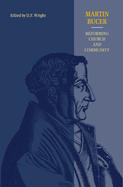When I read reformation theology and the reformers that God used mightily in the 16th century, invariably almost without exception, they knew Hebrew and Greek (Latin was a given). From Luther, Calvin, Martin Bucer, Zwingli, and their younger contemporaries like Beza and Melanchthon, Hebrew and Greek were emphasized in the reading and exegesis of Scripture. Martin Greschat, in Martin Bucer: A Reformer and his Times writes: "The clergy did not keep pace with the vigorous growth of knowledge at this moment of history."
It was in the early decades of the 16th century when printing presses and publication became commercially viable to the extent that sermons and writings of the reformers could reach the masses in their own vernaculars. Those clergy perhaps suffering from post-renaissance and pre-reformation scholastic stupor simply were not up to the task of preaching and explaining the Bible to their contemporaries and many of them were sidelined and in their place God raised his servants, the reformers who were trained and knowledgeable in the original languages of the Bible to mount pulpits across Europe. Likewise, we are experiencing another perhaps more vigorous growth in knowledge in the digital age where a single tablet could hold more books that an ancient library of 10,000 books with Hebrew and Greek OT and NT respectively at our finger tips, touch-screened, searchable and complete (Olive Tree App) and other Apps beside.

No comments:
Post a Comment